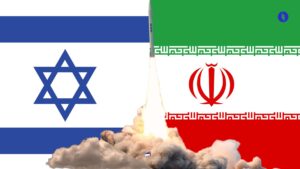The 61st annual Munich Security Conference took place in the city’s Bayerischer Hof Hotel over the weekend, bringing together world leaders, ministers, spy chiefs, and more. Touted as the ‘Davos of defence‘, its long-standing motto is “peace through dialogue“.
Here are six of the weekend’s key quotes you need to know, and why.
- “Ukraine has already shattered myths” – Ukraine’s president, Vlodymyr Zelenskyy
Seeking to preserve Western support and push back against a narrative of Russian momentum, Zelenskyy outlined several Russian ‘myths’, including: that Moscow could take Kyiv in days (we’re now at day 726), and that Ukraine couldn’t export grain through Russia’s Black Sea blockade (Ukraine has resumed exports, and says it’s now sunk a third of Russia’s Black Sea fleet).
Stay on top of your world from inside your inbox.
Subscribe for free today and receive way much more insights.
Trusted by 134,000+ subscribers
No spam. No noise. Unsubscribe any time.
Zelenskyy got a standing ovation in the packed hotel hall – he’ll be hoping this applause translates into more European shells and American air defences.
- “What really provokes an aggressor is weakness” – Estonia’s prime minister, Kaja Kallas
Many Europeans voiced unease not only at Russia’s longer-term intentions, but also America’s longer-term staying power, and the pace of Europe’s response. Against this backdrop, there were some big announcements from the Czechs (finding 800,000 shells for Ukraine) and the Danes (donating all their artillery). But there was also a real sense that the EU still has a long way to go to convert its heft (more than ten times Russia’s GDP and triple its population) into military might.
- “Isolation is not insulation” – The US vice president, Kamala Harris
Reflecting a US election year offering very different visions for America’s role in the world, the US vice president’s speech sought to signal to allies and adversaries alike that US leadership is here to stay. But many will have been looking over her shoulder towards election day in November.
- “Hamas is an idea, and you don’t kill an idea” – The EU’s foreign affairs chief, Josep Borrell
Borrell was voicing doubts about the feasibility – and disquiet about the cost – of Israel ending its conflict militarily. He and others instead urged a political offramp via a two state solution. But Israel’s foreign minister said “we can’t just leave Hamas there” (in Rafah), while the Palestinian Authority prime minister called on Hamas to join next week’s “Palestinian unity” talks in Moscow – but of course, the US, France, and others reject the idea of Hamas having a governing role.
- “Good partners provide choices, smart partners take some of those choices” – India’s foreign minister, S. Jaishankar
This was one of several lines Jaishankar deployed to account for the way India has, for example, pursued closer ties with the West while still buying Russian oil (and so financing Russia’s war). He went on to say, “if I am smart enough to have multiple options, you should be admiring me, not criticising me“. India-watchers will be familiar with this transactional approach, which reflects India’s belief that its growing weight means it can avoid picking sides.
- “The world economy is like a big ocean that cannot be cut into isolated lakes” – China’s foreign minister, Wang Yi
Wang used his speech to present China – in familiar terms – as a “force for stability“, and defended China-Russia ties as serving the world’s “strategic stability“. But his most direct remarks (including in a side-meeting with the US) actually referred to economic issues – he called on the US to lift sanctions, while warning that “de-risking” the US economy away from China would harm the US. His comments came as Beijing focuses increasingly on economic woes at home.
All in all, it was a lot. And few will have left the conference with a spring in their step. In fact, Lithuania’s foreign minister said he was feeling downright gloomy.
INTRIGUE’S TAKE
One line that really jumps out came from the EU’s foreign affairs chief Josep Borrell, who said “it is time to do whatever it takes for Ukraine to prevail.”
Sound familiar?
That’s right – “whatever it takes” was the famous line that the EU’s former central bank chief Mario Draghi deployed successfully in 2012 to ease the EU’s sovereign debt crisis. The line worked because everyone knew Draghi and his bank had the tools to address the crisis, and the will to use them.
But when deployed in the context of security, and in 2024, this “whatever it takes” line can’t have landed in the same way. There are still too many questions that the EU – and the broader West – is leaving unanswered.
Also worth noting:
- Hours after news emerged of her husband’s death in a Russian prison, Yulia Navalnaya (the widow of Russian opposition figure Alexei Navalny) spoke at the Munich Security Conference, urging the international community to fight against Putin’s “horrific regime“.








